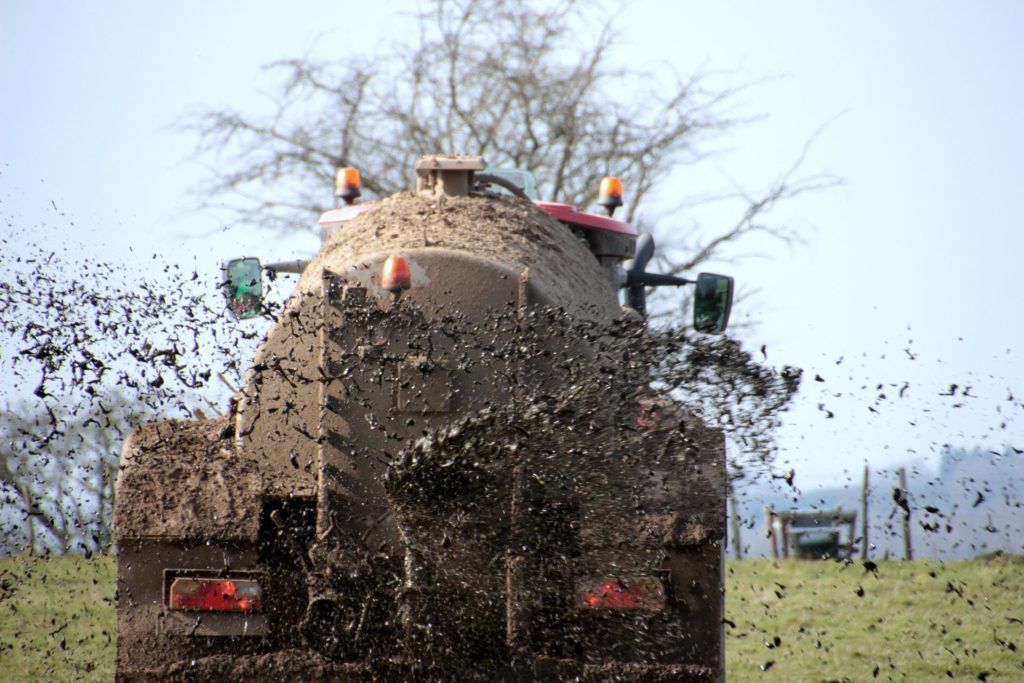Blogging BMP’s
A monthly Blog discussing the Best Management Practices (BMP’s) that must be used to aid in erosion and sediment control
Welcome back to another edition of Blogging BMP’s! As I flipped my calendar over to the new month, I
couldn’t help but notice the best week of the year is almost here! What week is that you ask? Well, it’s Elkhart
County 4H fair week, of course. In my younger years, this would not have been a revelation on the first day of
July, rather a year long process of building up to this week working on projects that I would eventually show at
the fair and then sell when the week was over. The annual whirlwind of fair week rivaled any holiday, sporting
event, and even vacation in my mind and to this day, brings a little bit of that childhood joy that seems to be so
elusive in my older age.
As an adult with children of my own, all of those great moments in life are still wonderful, but now taken with
a grain of salt. I guess the curtain has been pulled back on all of the magic and I realize the wizard was actually
hundreds of dedicated leaders and parents that poured there heart and soul into making sure kids like me got
to enjoy the magic of the fair and not worry about everything that goes into it. It is a cultural phenomenon that
can only be fully understood after you have played the role of leader, parent AND child,
Something else I never thought about as a kid brings us to the water quality part of this blog. One of the many
daily routines I was required to do with my projects (pigs and steers for those of you who are wondering) was
give them a bath at the wash rack facilities provided at the fairgrounds. As you may or may not know, pigs and
steers eat a lot, and as a result, defecate just as much. You can only imagine how much of that happens at the
wash rack when 100 steers and 300 hogs make their way through the bathing facilities. I cannot recall one time
someone bringing a shovel to the wash rack to clean up the mess, it was more like target practice with the spray
nozzle to get it down the drain as fast as possible so you didn’t have to stand in it. So, where did it go?
You will be happy to know that within the last 15 years the fairgrounds has routed the water from the wash
rack facilities to the sanitary sewer system that is managed by the City of Goshen. Prior to that it went through
a pipe and directly into our waterways, manure and all. Why was this infrastructure upgrade important? Here
are a few things you should know about animal waste and water quality.
Livestock manure contains bacteria, nitrogen, ammonia, and phosphates. When rain falls on manure, these
contaminants can be carried to local waterways by rainwater runoff, or in this case, directly through a stormwater
pipe. Many of the County’s creeks and rivers contain fecal coliform bacteria from both human and animal
waste. Its presence is an indicator that more harmful bacteria that cause dysentery, hepatitis, and giardia, are
likely also present in local creeks.
Excess amounts of nitrogen and phosphorous cause algae blooms which produce toxins dangerous to humans,
livestock, and marine life. These nutrients result in dead zones, or areas that lack the amount of oxygen needed
to sustain wildlife such as fish and macro invertebrates. When these pollutants enter our waterways, they
pose a threat to people, pets, and livestock.
How can you make a difference?
- Clean-up manure on a regular basis, especially during the wet season.
- Compost manure to reduce volume, pests, and carbon emissions, and to create an optimum nutrient source for your soil.
- Store manure and compost piles on a flat, dry, and impermeable surface. Make sure your storage area is not near a creek or storm drain nor at the top of a hill. Keep storage piles contained and covered at all times.
- Spread manure over pasture surfaces in a layer no thicker than 1 inch to increase vegetation productivity.
- Do not spread near creeks, ditches, or other waterways.
- Dispose of manure as a recyclable waste at a commercial compost site, or as trash at most landfills every seven days.
Even if you are not in the livestock industry, you can still do the little things like clean up
after your dog when on a walk or at the park and dispose of the waste properly. Another way
you can help is by letting us know if you suspect any type of pollution, including animal waste
that is going into our waterways. You can do this by reporting a polluter.
Thanks for following along and make sure to get out to the fair and support the present and
future leaders of Elkhart County!
